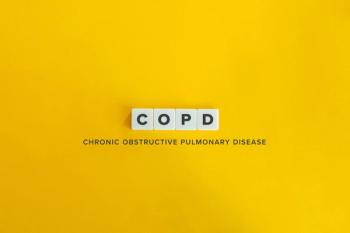
More Than Long COVID, There's Flu and Pneumonia Too
Epic research suggests that like COVID-19, flu and other viral pneumonias can result in long-term symptoms like fatigue and brain fog. Why that might be is open question.
No one sure is why long Covid occurs. That absence of certainty leaves plenty of room for competing theories to sprout up.
Researchers at Harvard reported findings last week in a
Researchers at Epic, the electronic health record company, have added another subplot to this complicated tale of lingering disease Using an Epic data set dubbed Cosmos that includes 142 million patients, they
“This something I had never thought about as a physician,” says Jeff Trinkl, M.D., one of the Epic researchers. “I didn’t think about long-term illness —that two months later (patients) may have brain fog or maybe am having this fatigue. I never made that association.”
The Epic findings, which the company published on the Epic Research website earlier this month but have not been reported in a peer-reviewed journal, found that “long flu” and “long viral pneumonia” may be more common than long Covid.
According to Trinkl and his colleagues, 17.6% patients hospitalized for flu had new symptoms after their acute illness compared with 15.5% of those hospitalized for other viral pneumonias and 13.9% of those hospitalized for COVID-19. The symptoms included in their study included fatigue, loss of smell or taste, heart palpitations, chest pain, difficulty breathing, myalgia (muscle pain) and brain fog. The research focused on symptoms for which patients sought care starting 28 days after the acute illness was over and during the following five months (in other words, between 28 and 180 days after the acute illness was over).
Once the researchers factored in a baseline rate of symptoms (calculated by looking at the symptom complaints before the acute illness) the percentage of patients who might be classified as having long flu was smaller— 6.4% — but still larger than the 5.2% who had symptoms that might be grouped under the heading long Covid.
The Epic researchers also looked at patients seeking care for new symptoms after a bout of acute viral respiratory illness that did not result in hospitalization and, therefore, presumably had a milder acute episode. In that group, the proportion of long viral pneumonia cases was higher than the long Covid and long flu cases (11.1%, 8.7% and 5.9%, respectively).
The COVID-19 patients in the study were diagnosed between Jan. 1, 2020, and July 1, 2021. The flu and other viral pneumonia cases were diagnosed before the COVID-19 pandemic, between Jan. 1, 2018, ad and July 1, 2019.
Long Covid has put a spotlight on the after-effects of viral illness, comments Trinkl. “In 2018,” Trinkl says, “[if] you ended up having some of the symptoms that we looked at — tiredness, fatigue — and some of them are a little bit more specific, like chest pain — you may not look back and say, ‘Oh, this is tied to this viral infection I had quite a while back.’ You may not even go in for it because you would have said, ‘I’m just tired,'” says Trinkl.
“But now COVID comes,” Trinkl continues, “and there's so much discussion about some of the symptoms you can have in a long-term fashion, so I feel like the population for the COVID is more sensitized to looking for these types of symptoms.”
It is certainly possible (indeed, likely probable) that because of long Covid, and findings such as these, more people will seek care for long-term symptoms after flu and other respiratory illnesses.
Trinkl and his colleagues want their results to lead to ore more research. “It’s something that deserves to be a broader conversation, because we do see this pattern repeated across infections,” says Eric Barkley, an Epic data scientist and one of the researchers involved in this Epic research.
Newsletter
Pharmacy practice is always changing. Stay ahead of the curve with the Drug Topics newsletter and get the latest drug information, industry trends, and patient care tips.























